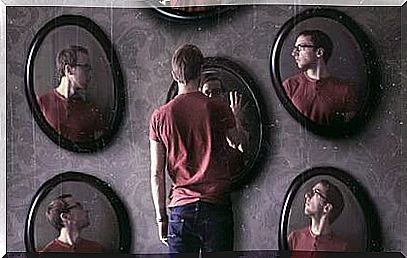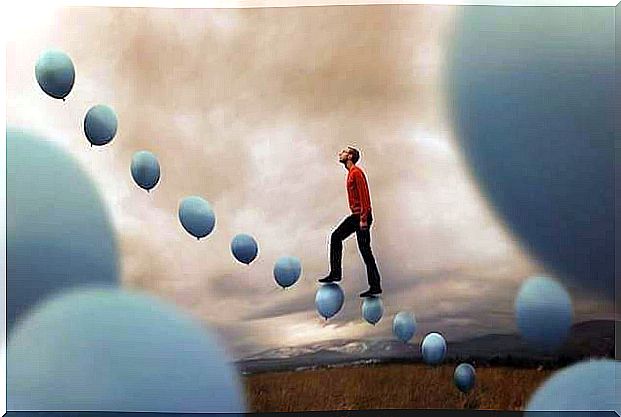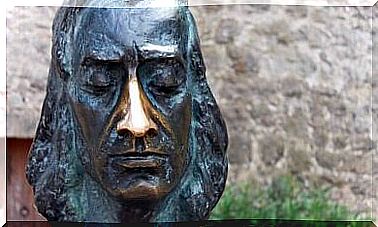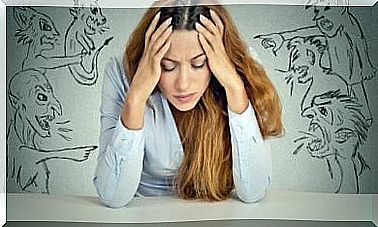Why Some People Don’t Admit Their Mistakes

If being wrong makes us more human, admitting our mistakes and asking for forgiveness would make us (as Alexander Pope claimed) divine. However, we live in an age marked by the infallible appearance. A time when people who will not admit their mistakes flock. A society where politicians do not take responsibility for their blunders and where institutions do not accept the price for their mistakes.
Why is it so difficult to take a step towards acknowledging our mistakes and clumsiness? As curious as it may sound, it is generally more likely to be given an apology for something particular rather than an apology courageously admitting the existence of an error or prejudice. A study carried out at Ohio State University demonstrated this to us.
Psychologists Roy Lewick and Leah Polin discovered that it is easier to say “okay, excuse me if I disturbed you” rather than “it’s true, I was wrong, I made a mistake” . In the first case, an attempt is made to briefly repair the emotional factor but no genuine sense of responsibility is demonstrated. In the second case, one fully assumes one’s guilt by expressing it in an open, sincere and courageous manner.
It is not easy to admit in front of others that one is fallible. To appear untouchable, invulnerable to failure, and extraordinarily effective, we create very rigid, complex and unsanitary scenarios. We may forget that happiness is not found in being divine. In reality, it only suffices to be human. When we admit our mistakes, it is ultimately an exceptional opportunity for growth and improvement.

People who don’t admit their mistakes: factors that explain it
People who don’t admit their mistakes make us despair at first. Over time, we try to calmly make them see the evidence of their actions. We then end by admitting that they are hopeless cases. This is the case because often these are rigid personality styles that lack social skills. We therefore realize that it is better not to waste time, morale and health for nothing.
Last year the New York Times published an interesting article about this. Princeton University professor Paul Krugman pointed out that the world is currently experiencing a strange epidemic of infallibility. In fact, politicians, social agents, all individuals wish to give an image of absolute efficiency. Admitting your mistakes, taking responsibility for certain mistakes or bad decisions that have had consequences,… it’s a red line that no one wants to cross.
This is due as well to the classic idea that taking responsibility for mistakes is a sign of weakness. In a world characterized by constant uncertainty, showing weakness is tantamount to hastening one’s downfall. Beyond this known social macro-scenario (and suffered by all), it is interesting to analyze this daily and close behavior. Let’s analyze those people who don’t admit their mistakes and live with us. What is behind these profiles?
Narcissism
Brunel University (United Kingdom) has carried out an interesting study to analyze personality styles and their way of interacting on social networks. We have seen that narcissists are people obsessed with the almost constant publication of their successes, goals achieved, apparent virtues and high skills.
However, this type of personality characterized by high self-esteem never admits his own mistakes. To do so would imply a direct violation of his expectations of absolute jurisdiction. It is much better to catch the mistakes of others in order to put yourself forward.

Personal irresponsibility
Personal irresponsibility is linked to emotional immaturity and a lack of social skills. Thus, people who do not admit their mistakes are also those who have serious deficiencies. They lack basic skills to live together, respect, create meaningful links, know how to team up or even create a future project.
If I don’t take responsibility for my mistakes, I assume that they don’t exist and that I am infallible. I assume that my actions have no consequences and that this authorizes me to do anything. This personal approach inevitably leads to failure and unhappiness.
Defense mechanisms
We all make mistakes and when we do, we have two options. The first and most reasonable is to admit the mistake and take responsibility. The second option is to refuse it, to block it and to build around it a sophisticated defense mechanism.
The most common is certainly cognitive dissonance. When two conflicting situations arise, a person may decide at some point not to see them or not to accept them so as not to have their identity affected.
For example, in an article published in the European Journal of Social Psychology , we were able to prove something very interesting. People who decide not to take responsibility for their mistakes believe that it makes them stronger. They believe they have more power over others and more control over themselves. So, even being aware of the mistake made and the presence of cognitive dissonance, they decide to ignore them in order to fully protect their ego.
To conclude, as we can see, people who do not admit their mistakes resort to psychological strategies in order to openly shirk their responsibilities. Getting them to open their eyes will be a laborious and difficult journey. However, that does not mean that they will be unable to take the step.
It is never too late to step off our pedestal and be human. Admit our mistakes and we will have before us a wonderful opportunity for personal growth.










